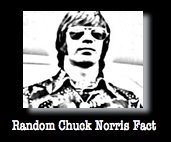 Here's a recent article in The New Yorker which discusses literacy and how it effects our ways of thinking. It's not shocking to know that the numbers of us who actually read a book is on the decline (and it's not just limited to the lazy American way of life--Europeans aren't reading either), but I found it interesting how the actual ability to read can even change how we perceive the world:
Here's a recent article in The New Yorker which discusses literacy and how it effects our ways of thinking. It's not shocking to know that the numbers of us who actually read a book is on the decline (and it's not just limited to the lazy American way of life--Europeans aren't reading either), but I found it interesting how the actual ability to read can even change how we perceive the world:
There’s no reason to think that reading and writing are about to become extinct, but some sociologists speculate that reading books for pleasure will one day be the province of a special “reading class,” much as it was before the arrival of mass literacy, in the second half of the nineteenth century. They warn that it probably won’t regain the prestige of exclusivity; it may just become “an increasingly arcane hobby.” Such a shift would change the texture of society. If one person decides to watch “The Sopranos” rather than to read Leonardo Sciascia’s novella “To Each His Own,” the culture goes on largely as before—both viewer and reader are entertaining themselves while learning something about the Mafia in the bargain. But if, over time, many people choose television over books, then a nation’s conversation with itself is likely to change. A reader learns about the world and imagines it differently from the way a viewer does; according to some experimental psychologists, a reader and a viewer even think differently. If the eclipse of reading continues, the alteration is likely to matter in ways that aren’t foreseeable.
This effect may go on to influence even our ability to "think out of the box" and be more tolerant to other viewpoints:
Self-doubt, therefore, becomes less likely. In fact, doubt of any kind is rarer. It is easy to notice inconsistencies in two written accounts placed side by side. With text, it is even easy to keep track of differing levels of authority behind different pieces of information. The trust that a reader grants to the New York Times, for example, may vary sentence by sentence. A comparison of two video reports, on the other hand, is cumbersome. Forced to choose between conflicting stories on television, the viewer falls back on hunches, or on what he believed before he started watching. Like the peasants studied by Luria, he thinks in terms of situations and story lines rather than abstractions.Luckily, this blog may not induce as much decay to your brain. Then again, you do have to read all the stupid stuff I write. And based on this blurb below, perhaps Firecracker George would have gotten better grades if he just looked at more porn:
The Internet, happily, does not so far seem to be antagonistic to literacy. Researchers recently gave Michigan children and teen-agers home computers in exchange for permission to monitor their Internet use. The study found that grades and reading scores rose with the amount of time spent online. Even visits to pornography Web sites improved academic performance. Of course, such synergies may disappear if the Internet continues its YouTube-fuelled evolution away from print and toward television.



4 comments:
"...perhaps Firecracker George would have gotten better grades if he just looked at more porn."
A) My grades weren't that bad. They weren't as high as most of the Kool-Aid Gang's, but As, Bs, and the occasional C is still above average. I was usually on the honor roll, even though, as one of our contemporaries once told me, I didn't "look like [I would] be on the honor roll."
B) My grades probably would have been better if our school system wasn't a one-size-fits-all institution, and actually knew how to recognize and teach kids with learning differences. The work force has been all about "thinking outside the box" for over a decade, yet our school system still largely punishes the people who do so naturally. I was thinking outside the box years before someone coined the phrase - back when they called it "being disruptive" and "not following the rules."
C) Considering how porn kind of fried my circuits in my mid twenties, I'm very thankful I didn't have access to it when I was in high school.
I don't know, FG--more porn, perhaps straight A's? You never know.
Then again, Wild Willie got better grades then any of us. Maybe my porn theory doesn't work. Or does it? ;-)
No I am like FG. I didn't experience its consuming and degrading powers until my twenties. Thankfully, I have also experienced the reverse by not looking at porn too.
Oh, and an interesting thought that wasn't fully explored in this post was the idea that with tv or movies you are stuck with what the director sees in his head. Reading allows you to create your own mental images. Imagine in the future that it is the movie makers who are considered to be the exclusively priveledged. The masses just follow the lead a little bit easier.
Post a Comment